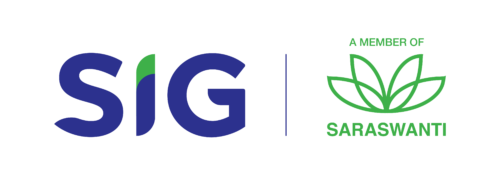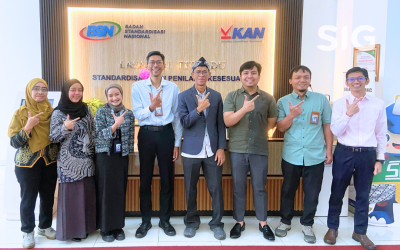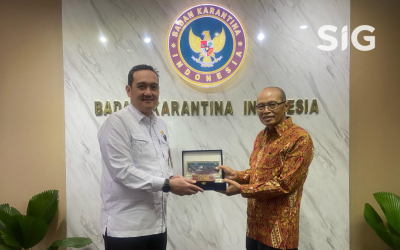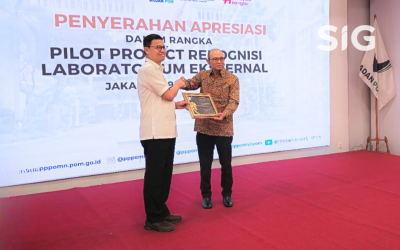Antimicrobial Test EN Method
Antimicrobial testing methods confirm the activity of antimicrobial agents under certain conditions. Antimicrobial products (disinfectants, antiseptics) can damage and inhibit the development of microorganisms and are necessary to test the safety, quality, efficacy. Several microorganisms include Pseudomonas aeruginosa, Escherichia coli, Staphylococcus aureus and Enterococcus hirae, and other bacterial strains upon request and tested according to BS EN and SNI EN standard methods.
How SIG Can Help
SIG laboratory provides a comprehensive range of antimicrobial testing for a range of products such as:
|
Method |
Application |
|
EN 1276:2019 |
Disinfectants |
|
EN 1276:2019 |
Antiseptics |
|
EN 1276:2019 |
Handwash |
|
EN 1276:2019 |
Floor cleaner |
|
EN 1276:2019 |
Perfuming clothes |
|
EN 1276:2019 |
Bleach |
|
Method |
Application |
|
EN 1650:2019 |
Disinfectants |
|
EN 1650:2019 |
Antiseptics |
|
EN 1650:2019 |
Handwash |
|
EN 1650:2019 |
Floor cleaner |
|
EN 1650:2019 |
Perfuming clothes |
|
EN 1650:2019 |
Bleach |
|
Method |
Application |
|
EN 1499:2013 |
Handwash |
|
EN 1500:2013 |
Handrub |
|
Method |
Application |
|
EN 13697:2015+A1:2019 |
Kitchen cleaner |
|
EN 13697:2015+A1:2019 |
Glass cleaner |
|
EN 13697:2015+A1:2019 |
Floor cleaner |
|
EN 13697:2015+A1:2019 |
Metal cleaner |
|
Method |
Application |
|
EN 13727:2012+A2:2015 |
Disinfectants for medical area |
|
EN 13727:2012+A2:2015 |
Antiseptics for medical area |
|
Method |
Application |
|
EN 13624 : 2013 |
Disinfectants for medical area |
|
EN 13624 : 2013 |
Antiseptics for medical area |
Therefore, SIG laboratory can support you in compliance with regulatory requirements and ensure your products are safe and high quality.
Several microorganisms can be tested according to the standard method of EN 1276: 2019:
● Bacillus cereus
● Bacillus sp
● Bacillus subtilis
● Enterobacter aerogenes
● Enterococcus faecalis
● Enterococcus hirae
● Escherichia coli
● Klebsiella pneumonia
● Listeria monocytogenes
● Pseudomonas aeruginosa
● Pseudomonas sp
● Salmonella sp
● Salmonella typhimurium
● Shigella sonnei
● Shigella sp
● Staphylococcus aureus
● Staphylococcus epidermidis
● Streptococcus sp.
● Vibrio cholerae
Several microorganisms can be tested according to the standard method of EN 1650:2019:
● Aspergillus niger
● Aspergillus brasiliensis
● Candida albicans
Several microorganisms can be tested according to the standard method of EN 1499:2013 & EN 1500:2013
● Escherichia coli K12
Several microorganisms can be tested according to the standard method of EN 13697:2015+A1:2019
● Bacillus subtilis
● Enterobacter aerogenes
● Enterococcus faecalis
● Escherichia Coli
● Klebsiella pneumonia
● Listeria monocytogenes
● Pseudomonas aeruginosa
● Salmonella sp
● Salmonella typhimurium
● Staphylococcus aureus
● Aspergillus niger
● Candida albicans
Several microorganisms can be tested according to the standard method of EN 13727:2012+A2:2015
● Bacillus cereus
● Bacillus sp
● Bacillus subtilis
● Enterobacter aerogenes
● Enterococcus faecalis
● Enterococcus hirae
● Escherichia coli
● Klebsiella pneumonia
● Listeria monocytogenes
● Pseudomonas aeruginosa
● Pseudomonas sp
● Salmonella sp
● Salmonella typhimurium
● Shigella sonnei
● Shigella sp
● Staphylococcus aureus
● Staphylococcus epidermidis
● Streptococcus sp.
● Vibrio cholerae
Several microorganisms can be tested according to the standard method of EN 13624 : 2013 :
● Aspergillus niger
● Aspergillus brasiliensis
● Candida albicans
Method of Analysis
We offer these tests in line with standard test methods, including:
● EN 1276:2019
● EN 1650:2019
● EN 1499:2013
● EN 1500:2013
● EN 13697:2015
● SNI EN 13727 : 2012
● SNI EN 13624 : 2013
Biocidal activity test of chemical disinfectants and antiseptics according to European Standards (EN), based on reducing the number of test microorganisms under specified conditions. The EN method’s scope is testing of active substances of disinfectants/antiseptics and end products that are ready to be applied on hands and the environment.
Library of Knowledge
Fulfill BSN KAN Invitation: SIG Ready to Collaborate to Enhance Laboratory Role Education in the Community
Jakarta, March 27, 2025 – On this occasion, SIG responded to the invitation from BSN KAN to have a direct audience with Dr. Agustinus Praba Drijarkara, Director of Laboratory Accreditation, and his team. SIG was represented by Mr. Adi Mulyadi, QA Manager, and Mr....
Explained the Capabilities and Capacity of the Lab, SIG Ready to Support the Needs of the Indonesian Quarantine Agency
Jakarta, March 20, 2025 – It is an honor for SIG to be directly received by Mr. Shahandra Hanitiyo, S.IP, M.Si., Secretary of the Indonesian Quarantine Agency, and his team. The visit, led by the President Director of SIG, Dr. M. Edi Premono, aimed to present and...
SIG Receives “Good” Rating in the BPOM External Laboratory Recognition Pilot Project
Bogor, March 19, 2025 – It is an honor for SIG to accept the invitation from the Head of BPOM, Prof. Taruna Ikrar M.Biomed PhD, for the presentation of the certificate of the BPOM External Laboratory Recognition Pilot Project for testing laboratories. SIG successfully...
SIG Laboratory
Graha SIG, Jl Rasamala No. 20, Taman Yasmin, Bogor, Jawa Barat 16113.
Phone. +62 251 7532 348
WhatsApp. +62 82 111 516 516
Email. marketing@siglaboratory.co.id
SIG Jakarta
Jl. Percetakan Negara No. 52 B RT 006 / RW 001, Rawasari, Cempaka Putih, Jakarta Pusat 10570.
Phone. +62 21 2147 9292
SIG Medan
Jl. Bunga Asoka, Ruko Komp. Asoka Raya Residance No. 1, Medan Selayang, Sumatera Utara 20133,
WhatsApp. +62 822 7207 9665
Email. salesmedan.sig@saraswanti.com
SIG Semarang
Jl. Kanfer Raya Blok R No. 4 Pedalangan, Kec. Banyumanik, Kota Semarang, Jawa Tengah 50268.
Phone. +62 24 7004 0541
WhatsApp. +62 812 9000 5165
Email. cs.sigsmg@saraswanti.com
SIG Yogyakarta
WhatsApp. +62 896 4856 9422
Email. arifin.sig@saraswanti.com
Operational Hours
Monday to Friday
08.00 - 17.00 WIB.

FOLLOW US
